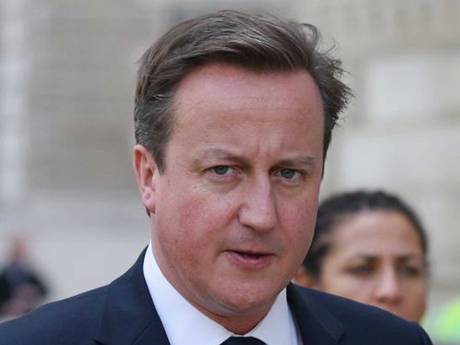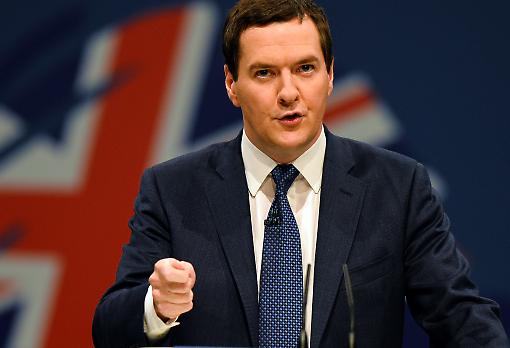This article by Cut n Paste from http://bristol.indymedia.org.uk/article/703298

Bristol loses 28million pounds worth of services and big business has a great month of bonuses (paid for by us) and tax breaks, while at the same time announcing job cuts for thousands of people.
So first up we have Lord Oakeshot resigns as treasury spokesmen moves to back benches in disgust at Osborne’s farcical Project Merlin which will lead to bankers receiving huge bonuses again.
Barclays boss, Bob Diamond will get a bonus of least £8m, they are planning to cut about 4,000 jobs in its retail bank.
Stuart Gulliver of HSBC at least £9bn.
Stephen Hester, chief executive of Royal Bank of Scotland, is to take a £2.04m bonus for last year at the same time they are making plans to cut 2,300 jobs, which ironically they announced only hours after its former chief executive Sir Fred Goodwin had publicly apologised for the Edinburgh-based bank’s downfall.
Eric Daniels, his soon-to-depart counterpart at bailed-out Lloyds Banking Group, is to receive £1.45m, while the Lloyds Banking Group is also expected to cut thousands of jobs.
As the Guardian states:
Oakeshott, a former City financier and a close ally of Cable’s, had been scathing. Speaking while still a Liberal Democrat Treasury spokesman, he laid into the Treasury’s negotiators saying: “They’ve got an awful combination of arrogance and incompetence, most of them couldn’t negotiate themselves out of a paper bag.”
Oakeshott, who was not in the government but spoke for the junior coalition partner on Treasury matters in the Lords, stood down shortly after he criticised officials working on the government’s deal with the bankers and said: “If this is robust action on bank bonuses, my name’s Bob Diamond.”
So massive bank bonuses and huge job cuts seem to be the deal of the day.
http://www.guardian.co.uk/politics/2011/feb/09/lord-oakeshott-quits-banking-deal
Then we have a change in Tax law that massively benefit the rich and means we lose out hugely in tax revenues which could fund public services and stop cuts.
As George Monbiot states in the Guardian:
“At the moment tax law ensures that companies based here, with branches in other countries, don’t get taxed twice on the same money. They have to pay only the difference between our rate and that of the other country. If, for example, Dirty Oil plc pays 10% corporation tax on its profits in Oblivia, then shifts the money over here, it should pay a further 18% in the UK, to match our rate of 28%. But under the new proposals, companies will pay nothing at all in this country on money made by their foreign branches.
Foreign means anywhere. If these proposals go ahead, the UK will be only the second country in the world to allow money that has passed through tax havens to remain untaxed when it gets here. The other is Switzerland. The exemption applies solely to “large and medium companies”: it is not available for smaller firms. The government says it expects “large financial services companies to make the greatest use of the exemption regime”. The main beneficiaries, in other words, will be the banks.
But that’s not the end of it. While big business will be exempt from tax on its foreign branch earnings, it will, amazingly, still be able to claim the expense of funding its foreign branches against tax it pays in the UK. No other country does this. The new measures will, as we already know, accompany a rapid reduction in the official rate of corporation tax: from 28% to 24% by 2014. This, a Treasury minister has boasted, will be the lowest rate “of any major western economy”. By the time this government is done, we’ll be lucky if the banks and corporations pay anything at all. In the Sunday Telegraph, David Cameron said: “What I want is tax revenue from the banks into the exchequer, so we can help rebuild this economy.” He’s doing just the opposite.
So how did this happen? You don’t have to look far to find out. Almost all the members of the seven committees the government set up “to provide strategic oversight of the development of corporate tax policy” are corporate executives. Among them are representatives of Vodafone, Tesco, BP, British American Tobacco and several of the major banks: HSBC, Santander, Standard Chartered, Citigroup, Schroders, RBS and Barclays.
Reading Treasure Islands, I have realised that injustice of the kind described in this column is no perversion of the system; it is the system. Tony Blair came to power after assuring the City of his benign intentions. He then deregulated it and cut its taxes. Cameron didn’t have to assure it of anything: his party exists to turn its demands into public policy. Our ministers are not public servants. They work for the people who fund their parties, run the banks and own the newspapers, shielding them from their obligations to society, insulating them from democratic challenge.
Our political system protects and enriches a fantastically wealthy elite, much of whose money is, as a result of their interesting tax and transfer arrangements, in effect stolen from poorer countries, and poorer citizens of their own countries. Ours is a semi-criminal money-laundering economy, legitimised by the pomp of the lord mayor’s show and multiple layers of defence in government. Politically irrelevant, economically invisible, the rest of us inhabit the margins of the system. Governments ensure that we are thrown enough scraps to keep us quiet, while the ultra-rich get on with the serious business of looting the global economy and crushing attempts to hold them to account.”
http://www.guardian.co.uk/commentisfree/2011/feb/07/tax-city-heist-of-century
And finally surprise, surprise The Con Dem government is full of ex wankers oh sorry bankers as the Mirror states:
“Our investigation found that of the 498 Tory MPs and peers 134 have been or are employed in the financial sector, this includes 70 of the party’s 305 MPs. Among the 193 Conservative peers, more than a third work or have worked in finance or banking. The Tories also stand accused of introducing laws that give a full tax exemption for British companies’ tax haven branches and letting them get away with an 8% tax rate for profits diverted to havens through internal financing. Altogether there are more Tory MPs who have been on the banks’ payroll than the total number of Lib Dem politicians. Labour MP Tristram Hunt said: “The Conservative Party is as much as ever the preserve of a small elite of professions of which financial services is by far the largest.”
Among the Cabinet members with links to the City are Pay-master General Francis Maude, who has worked for Solomon Bros and Morgan Stanley; Leader of the House of Lords, Lord Strathclyde who was chair of Trafalgar Capital Management from 2001-10; Cabinet Office minister Oliver Letwin, who worked for NM Rothschild & Son from 1986-2009; International Development Secretary Andrew Mitchell, who worked for Lazard Bros from 1979-2009; and Commons Leader Sir George Young, who worked for the Samuel Hill merchant bank.
Eleven Tory MPs and peers have worked for Barclays, including Richard Bacon MP, Jesse Norman MP, former Chancellor Lord Lawson, Earl Howe and Andrea Leadsom MP. A further eight Conservatives have been at Rothschild, including John Redwood MP, Mark Garnier MP, former Chancellor Lord Lamont and Jacob Rees-Mogg MP.
And four worked for Lehman Bros, the company whose collapse sparked the financial crisis.”
http://www.mirror.co.uk/news/politics/features/2011/01/10/conservative-party-links-to-fat-cat-bankers-revealed-by-daily-mirror-investigation-115875-22838080/
So there you have it a great year so far for a corrupt regime filling its own pockets and setting themselves up for a nice chief executive / consultant job in the finance sector.
See that our ex prime minister sorry war criminal Tony Blair has a nice cushy job at JP Morgan (only £5 million a year, must e a hard life) who were instrumental in the financial crisis and are currently destroying the world with their financial terrorism.
http://news.bbc.co.uk/1/hi/business/7186975.stm
 David Cameron’s attempts to “brush aside” legitimate concerns that the Government has not yet closed a legal tax loophole, which is losing the public purse at least £500m a year, have been condemned by MPs and campaigners.
David Cameron’s attempts to “brush aside” legitimate concerns that the Government has not yet closed a legal tax loophole, which is losing the public purse at least £500m a year, have been condemned by MPs and campaigners.
